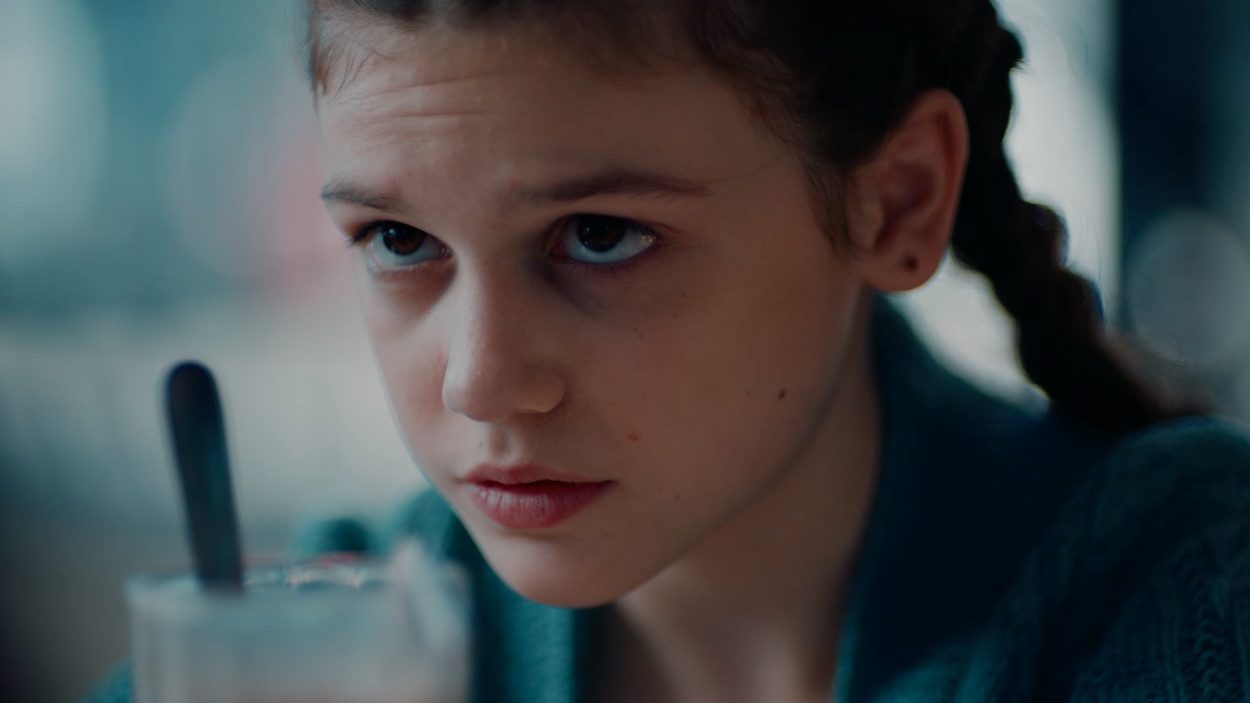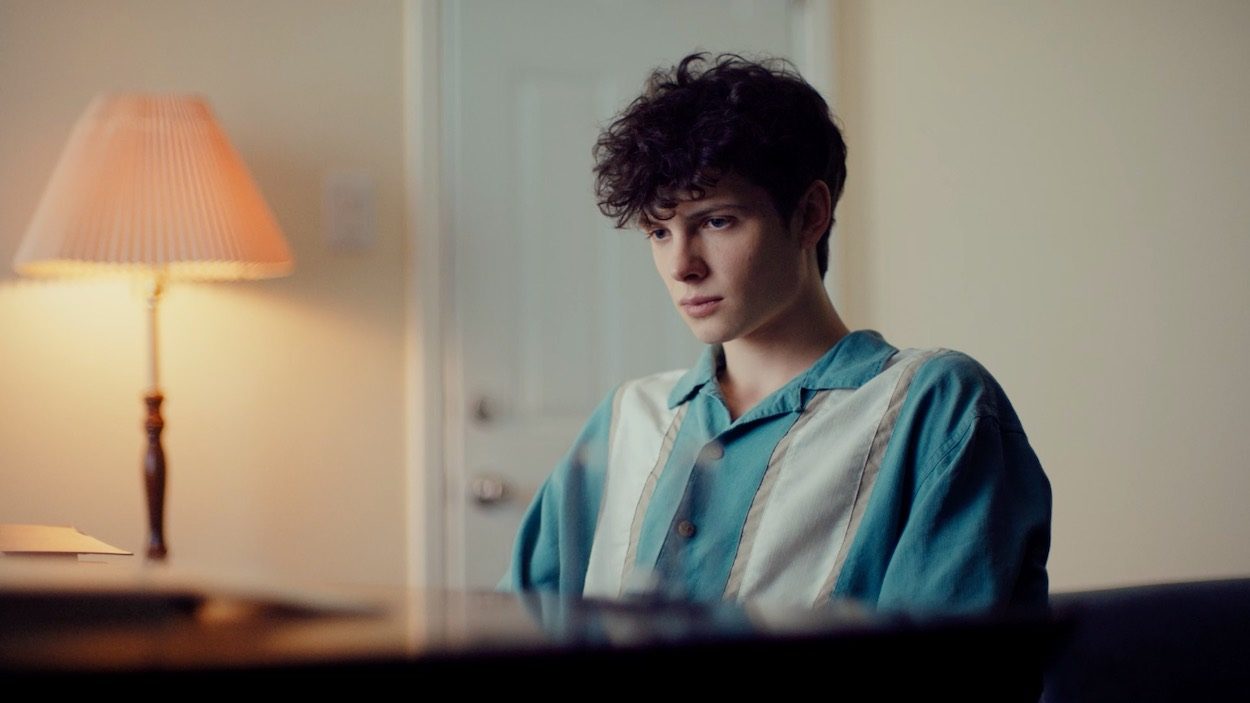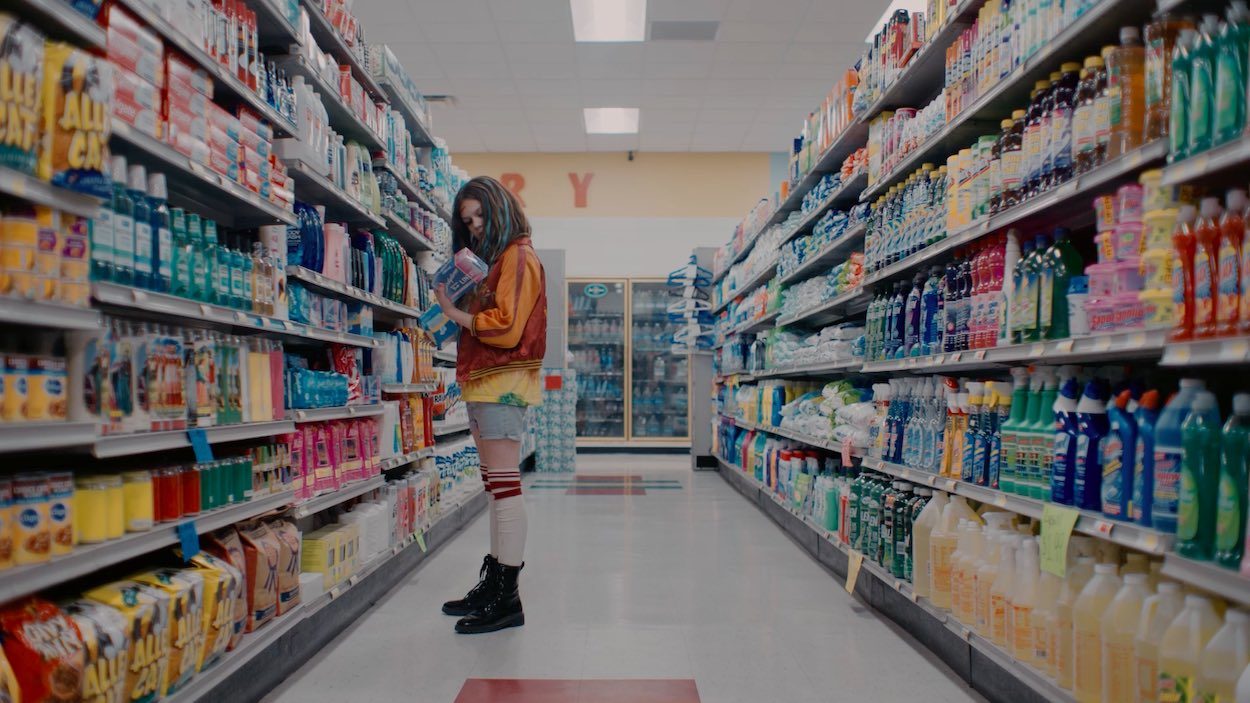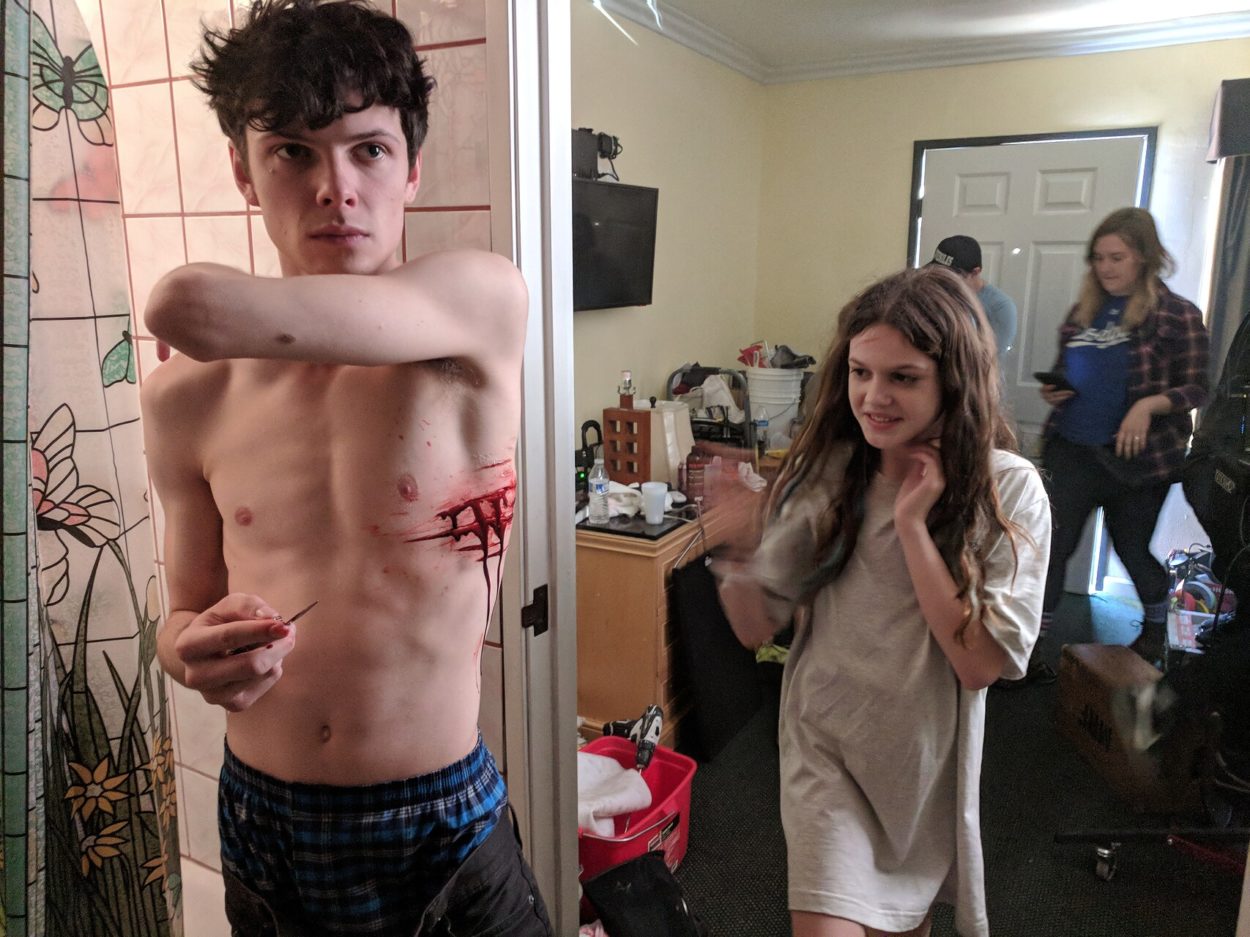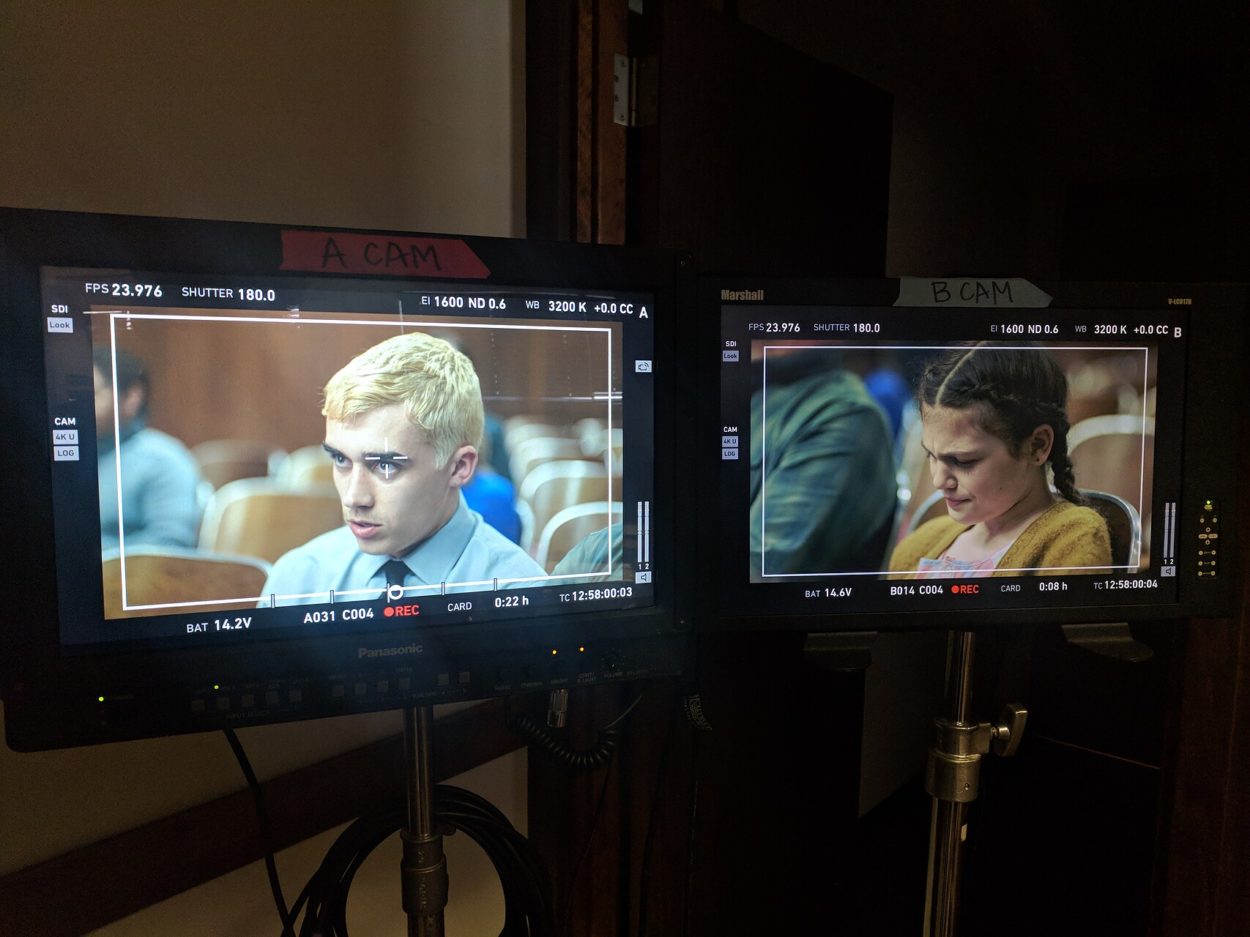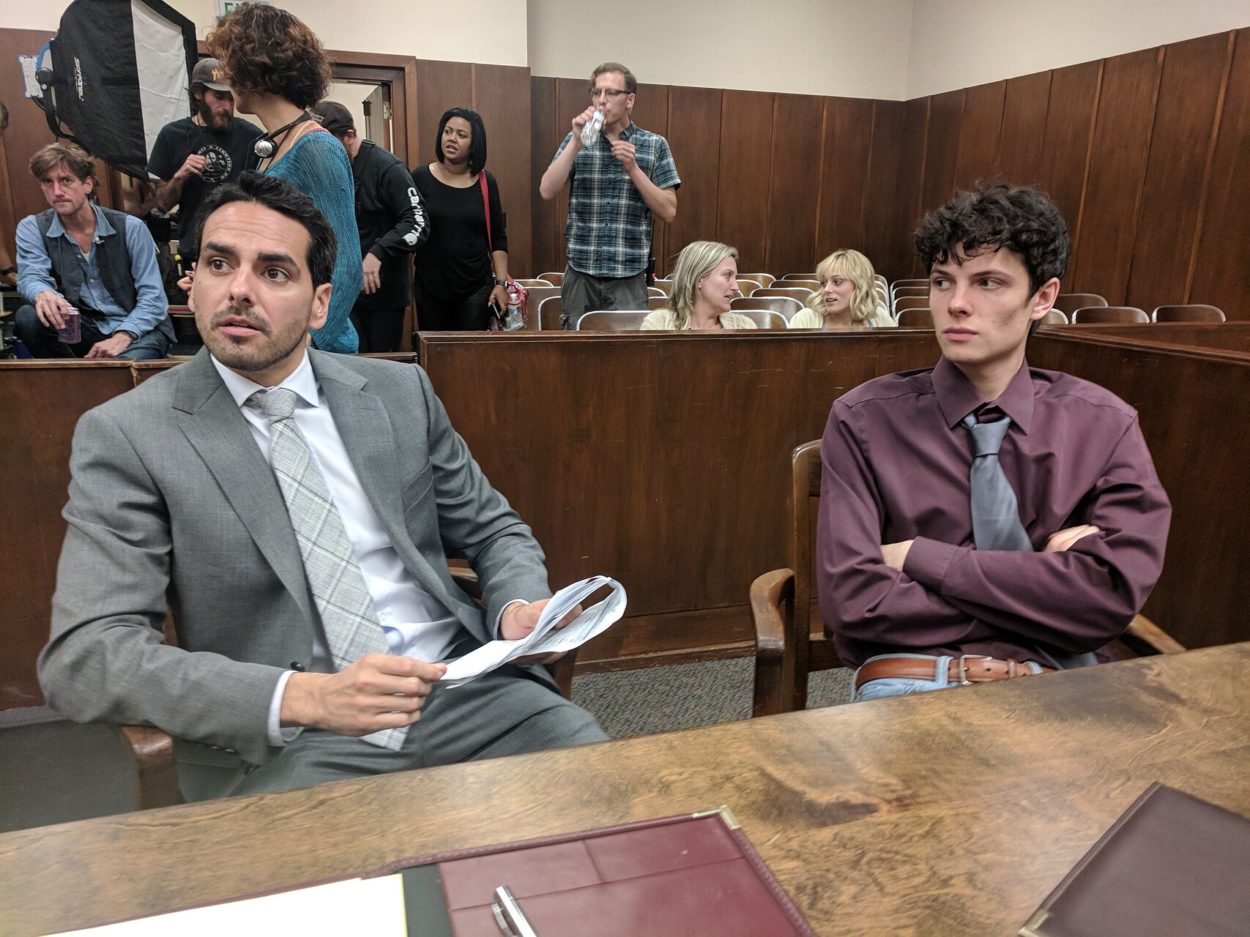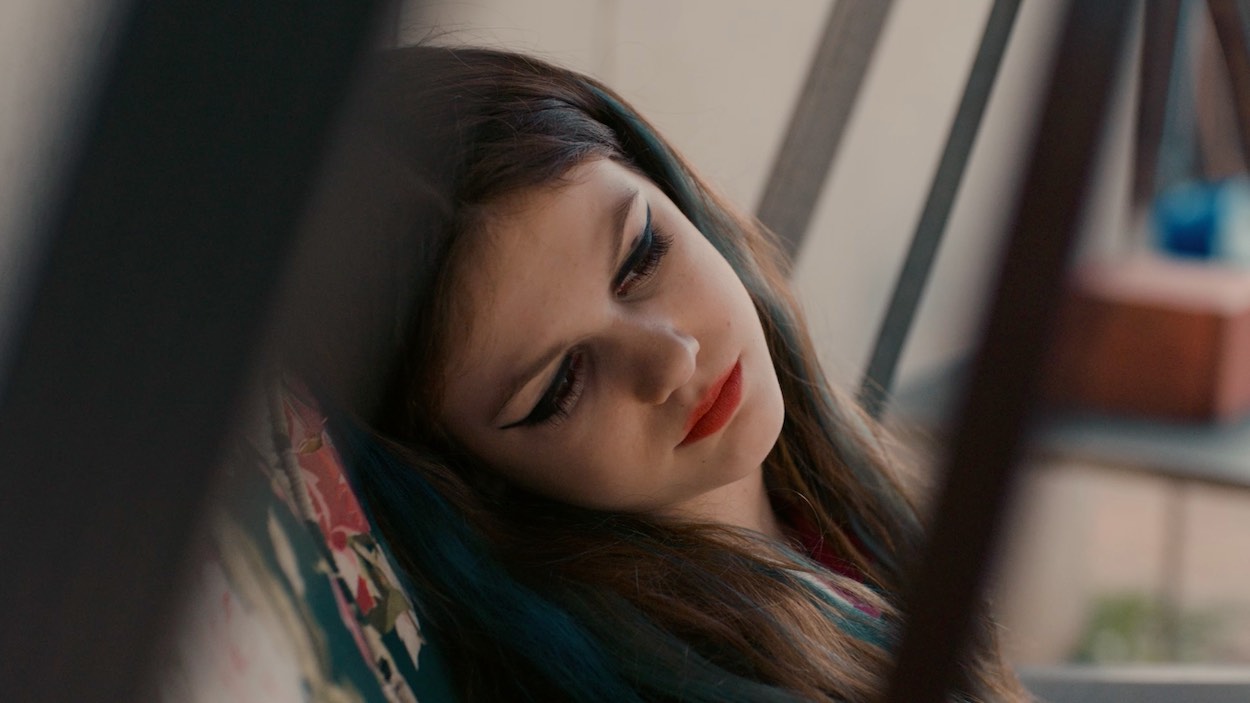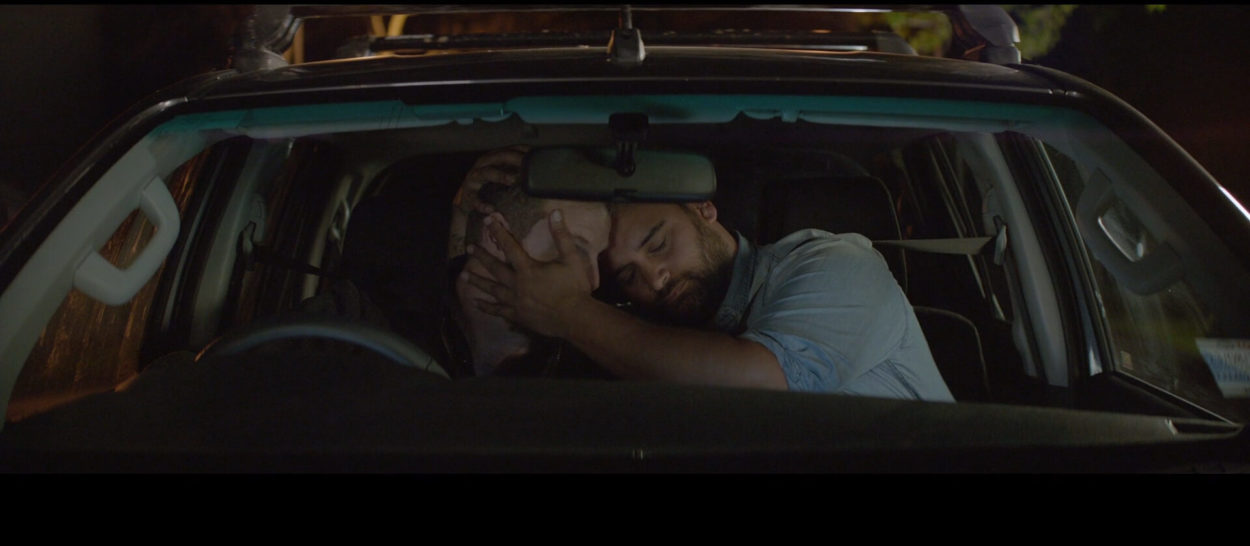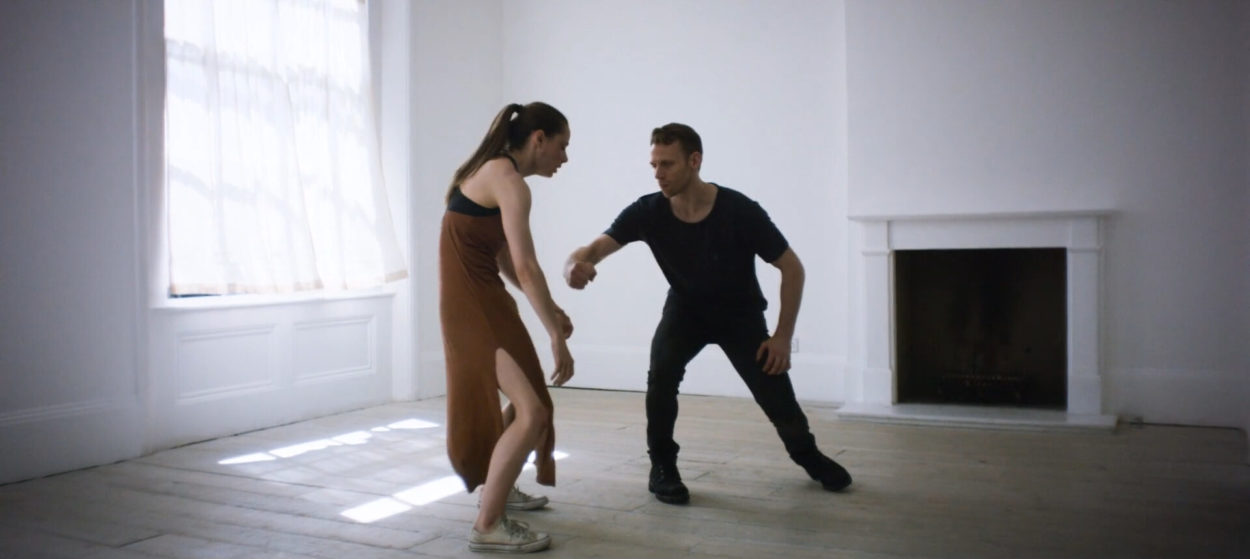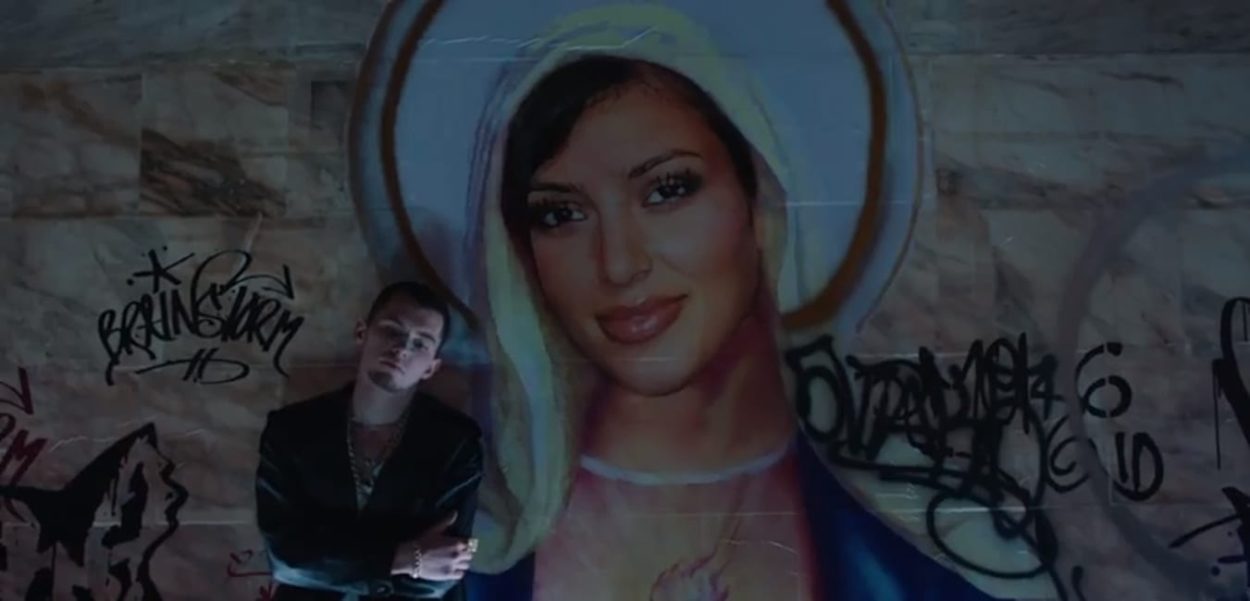Chloe Fraser as 12 year-old Mercedes
Your Blackpill series, First Love, which meshes your commercial film craft with your talent for telling fearless, emotionally intense narratives. How did the series come about? What was behind your decision to address this sensitive and difficult subject of paedophilia?
The original idea came from the show’s creator Adi Tishrai, she sent us a short synopsis and we immediately knew we wanted to make it happen. At first, it was the characters who really hooked us, Zack And Mercedes. In the very first synopsis it wasn’t clear where this was all going, it was just two lonely souls who find each other and navigate between friendship and what would be an impossible love story. It was already on the edge, but it leaves you questioning; is this a crime or real love? That ambiguity was something very interesting and we wanted the viewer to constantly question it while going through an intense emotional journey.
It’s only when we really developed the script together with Adi that we started digging deeper and deeper into the story and finally chose to address the subject of paedophilia. It was scary at first, it is the taboo of all taboos and was rarely treated on screen, but that challenge was also gripping. We felt that not running away from it would only make the emotional journey even more powerful and intense and take the viewer by surprise.We liked the idea that the story could first be seen as a simple teenage story until it suddenly enters a darker dimension.
You alternate the evolving romantic relationship between 17-year-old Zach and the precocious 12-year-old Mercedes with scenes in court. What were the key guiding principles you wanted to observe while writing the narrative with Adi Tishrai?
The court scenes and the flashbacks intertwined the storyline perfectly to keep the viewer walking on that thin line, where they can never really make up their mind whether what they are feeling for these characters, and for Zack particularly, is okay or not. We wanted to make the viewer love him and hate him and love him again and hate him again all along in a restless journey. We loved the idea of creating a complex story showing that no judgements should be definitive until you get the full picture.
Did you find working with a female writer brought a different sensibility to the script?
We actually worked with two female writers. Adi Tishrai who initiated it and also Barbara Stepansky, who was a more experienced writer from the US and helped us structure the series and give it the “USA” credibility since it’s taking place there and neither us nor Adi are Americans.
We could never imagine writing such a story without a female writer. We were very concerned about making the emotions of the characters as genuine as possible. That story has a male and a female protagonist so we absolutely needed these different sensibilities to write it.
What was behind your decision to shoot the series in the States instead of your native France?
The platform who commissioned it, Blackpills, wanted the series to be shot in English. That’s why Adi set the story in the US at a very early stage. We were very concerned about making it as authentic as possible and questioned our ability to do it in a country that we mostly know from other films and series. We felt it could quickly become a cliché, just a representation of all our fantasies about what an American series must be. That’s why we wanted to involve as many Americans in the creative process, first with Barbara at the writing stage, but also afterwards with all the film crew and especially our DOP Zack Spiger. We told him to warn us if what we were shooting wasn’t credible from an American point of view and was just the result of a French fantasy.
Did the film evolve during the production or did you stick closely to the script and treatment mapped out in pre-production? How valuable was the editing process to the whole structure of the series?
The story was mostly shot like it is written in the script. We had only two months to write the script, one month to prep and 19 days to shoot for the full 1h40 final result. That didn’t leave a lot of room for questioning the whole thing over and over. The dialogues on the other hand changed a lot and Mercedes’ lines were 90% improvisation the whole time. Which was the real challenge for our editor Sacha Szwarc, because during each take, each angle of a scene, Cleo Fraser (Mercedes) was coming up with a different story, a different line. It was a lot of work to put everything back together and make sense of it all.
The other challenge of the edit was to create small dreamy, poetic moments that we wanted to elevate the film above the raw reality. Some of these moments were already written but Sacha came up with new ideas who really took the whole thing to another dimension.
Every actor gives an outstanding performance. What was your process for first casting and then working with them before production?
The biggest challenge was Mercedes. We quickly discovered that Cleo was super charismatic and magnetic when she was improvising. As soon as we got her to read our lines, it felt boring and bland. It wasn’t so much of a surprise, writing the lines of a 12 year-old girl when you’re a bunch of 30+ old writers isn’t an easy thing to do. So we quickly took the decision to go full improvisation with her.
After the first day of shoot, when we realised that she was always improvising something different on all the different angles of a scene we started wondering if this would all cut. We thought the possibility of ending up with something completely impossible to edit was there, but we took a leap of faith and continued that way. Charles Gilibert, the experienced cinema producer of the series, gave us only one piece of advice before the shoot: the performances go first.
The rest of the actors were already more experienced and we learnt more from them than they learnt from us.
What were the main challenges of the production?
Timings. As we said before, we received a one-page synopsis in July and we finished shooting the whole thing at the end of December of the same year. During all that time we had to write ten ten-minute scripts, and prep everything. It created some frustration, especially when it was about deciding how we will shoot a scene. We would have liked to have more time to really find more interesting ways to tell the story of a specific scene with the camera, but it was nearly impossible so we had to come up with a “recipe” that would work for most scenes. However, we think that energy was also beneficial, we constantly had to move on to the next stage of production and couldn’t lose ourselves in endless and sometimes useless questions.
The complete series was your first foray into a longer format, albeit cut up into serial chunks. How did you find the transition from directing commercials and music videos?
The transition wasn’t actually as hard as it could have been. We always had in mind to direct longer formats and always had this cinematic approach in our music video work. Directing music videos and commercials is a very good way to learn, try new things, and develop a style. We already had directed a charity film for NSPCC with a sensitive topic and young teenagers, it was five minutes long with dialogues and already a bit of improvisation. We just had to capitalise on all these experiences and make it work on a longer run.
What is your creative process for making decisions as a directing duo? How do you work out any disagreements?
We’ve known each other for so long that we’re like one person when it comes to directing. We have a lot of trust for each other and would always take in consideration the feelings of the other one. It very rarely happens that we reach real disagreement. The main advantage is that everything we do has to pass two levels of expectations instead of one. Like if one of us is happy with a performance and the other one isn’t, we do one more take and eventually we have more options and backups in the edit room. It’s like a safety net.
Following the success of the series are you now looking to direct longer format films?
Yes. We’re currently developing another series, with eight 30-minute episodes this time. That one will be in French and take place in Paris. The subject stays within our themes of predilection; an edgy and emotionally loaded teenage love story in the Parisian night. Shooting should start at the end of 2022/early 2023.
To watch full series, download Blackpills app here
Truman & Cooper website
Truman’s Instagram
Cooper’s Instagram
Represented by:
Blink in the UK
Diplomats in France
